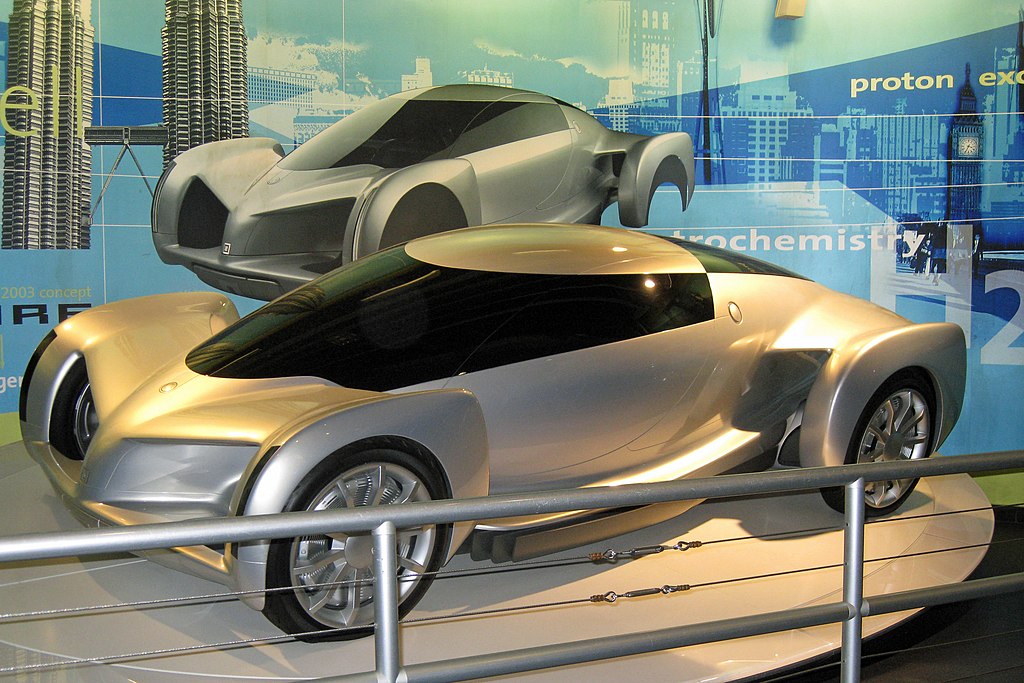Motor City Blues: GM Layoffs
Layoff Insider • Edmond Graham - December 14, 2023

Photo Courtesy of: Beau B CC BY 2.0 (Content modified to fit)
Motor City Blues: GM Layoffs
The news hit Michigan like a Detroit winter wind: General Motors, the beating heart of the state's economy, is laying off 1,314 workers across two Michigan plants. The Orion Assembly plant in Orion Township and the Warren Transmission plant in Warren are bracing for the impact, and the ripple effect across the state's workforce and morale is already palpable.
For years, Michigan has clung to the hope of a manufacturing renaissance. The auto industry, once the state's lifeblood, had stumbled in recent years, but glimmers of revival seemed to flicker with the rise of electric vehicles and autonomous driving technology. GM, with its iconic brands and hefty investments in these areas, was seen as a beacon of hope, a symbol of Michigan's unwavering industrial spirit.
Now, with this latest blow, those embers of optimism smolder. The layoffs, while not a catastrophic event, are a gut punch to a state still recovering from the 2008 recession and the subsequent decline of traditional auto manufacturing. These aren't just numbers on a spreadsheet; they're families thrown into uncertainty, communities teetering on the edge of economic strain, and a renewed sense of vulnerability gnawing at the heart of Michigan's identity.
Unpacking the Impact: Beyond the Numbers
The immediate impact of the layoffs is tangible. 945 jobs are being cut at the Orion Assembly plant, where the Chevrolet Bolt EV and the GMC Hummer EV were manufactured. This closure represents a significant shift in GM's electric vehicle strategy, raising questions about the future of these models and the state's ambitions in the clean energy space.
Across town, the Warren Transmission plant is losing 369 jobs, further shrinking the state's manufacturing base and leaving a void in the skilled workforce that has been built over generations. The ripple effect will extend beyond these immediate losses, impacting local businesses, schools, and the overall tax base.
But the impact of these layoffs goes beyond mere numbers. It's a symbol of broken promises, of dashed hopes, of an industry that seems to be shifting its gears away from Michigan. It's a blow to the pride and resilience that have been the hallmarks of the state's blue-collar workforce.
The Auto Industry: Crossroads and Challenges
The GM layoffs are not simply an isolated incident. They are part of a larger trend within the auto industry, a dance between innovation and adaptation that often leaves workers caught in the crosshairs. The rise of automation and the focus on electric vehicles are undoubtedly changing the landscape, but the question remains: how do we ensure that these changes don't come at the cost of human well-being and community stability?
The U.S. auto industry faces several critical challenges:
• Competition: Foreign manufacturers and emerging tech companies are constantly pushing the boundaries of innovation, forcing established players like GM to adapt and innovate.
• Technology: The transition to electric vehicles and autonomous technology requires significant investments and retraining of the workforce.
• Global pressures: Trade wars, economic uncertainty, and changing consumer preferences create additional pressure on the industry. These challenges require a multi-faceted approach:
• Government support: Investing in research and development, providing incentives for clean energy initiatives, and creating strong safety nets for displaced workers are crucial.
• Industry collaboration: Automakers, unions, and educational institutions need to work together to develop training programs and prepare the workforce for the changing landscape.
• Community engagement: Investing in local communities, supporting small businesses, and fostering a culture of innovation and entrepreneurship are essential for mitigating the impact of layoffs and building a more resilient economy.
Looking Ahead: A Path Forward for Michigan
The GM layoffs are a wake-up call for Michigan. They remind us that the state's economic future is not guaranteed, that the road to a thriving auto industry is paved with challenges, and that adaptation and resilience are key.
But amidst the uncertainty, there are glimmers of hope. Michigan is still home to a skilled workforce, a strong entrepreneurial spirit, and a legacy of innovation. The state has the potential to become a leader in the clean energy space, a hub for advanced manufacturing, and a center for technological development.
To seize this potential, Michigan needs to:
• Embrace innovation: Invest in research and development, attract talent and businesses in emerging industries, and create an environment that fosters creativity and risk-taking.
• Prioritize workforce development: Train and upskill workers for the jobs of tomorrow, focus on STEM education, and create pathways for lifelong learning.
• Strengthen communities: Invest in infrastructure, support small businesses, and promote economic diversification to create a more resilient and inclusive economy.
• Hold the industry accountable: Advocate for fair labor practices, ensure environmental sustainability, and push for policies that benefit both workers and communities
 0
0
 0
0
-
Friday 26th of January 2024 05:14:32 PM
 0
0
 0
0
ZAP
-
Friday 26th of January 2024 05:14:31 PM
 0
0
 0
0
ZAP